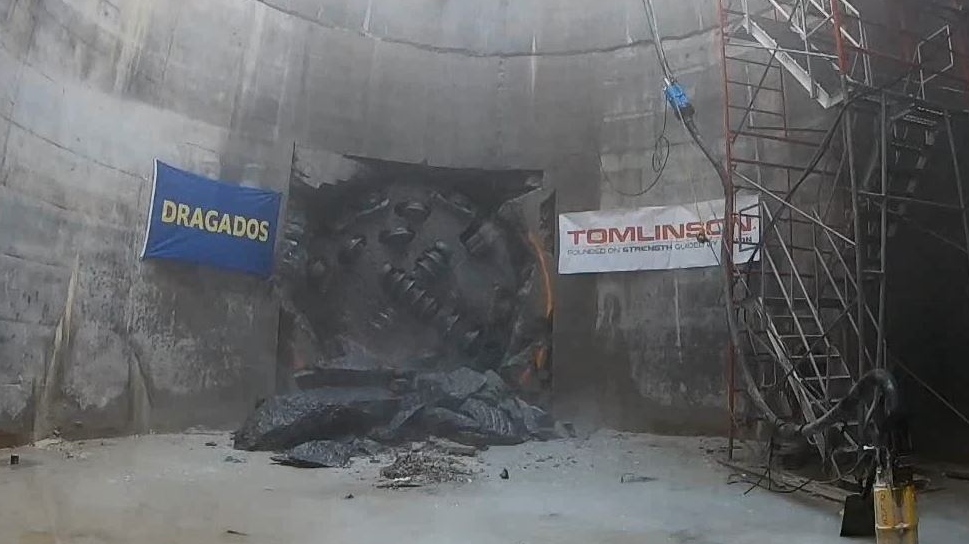Heavy rain sends millions of litres of raw sewage into the Ottawa River this summer
 Rain falls at LeBreton Flats on Wednesday. (Jackie Perez/CTV News Ottawa)
Rain falls at LeBreton Flats on Wednesday. (Jackie Perez/CTV News Ottawa)
Heavy rain has sent more than 51 million litres of raw sewage flowing into the Ottawa River this summer.
Environment Canada says 303.5 mm of rain was recorded at the Ottawa International Airport in June and July.
Statistics available on the City of Ottawa's website show 51,356,000 litres of storm water and wastewater overflowed the sewage system and into the Ottawa River.
There have been four sewage overflow incidents in June and July.
The biggest sewage overflow was on June 6, when Ottawa received 44.1 mm of rain. The city's website says 50.1 million litres of combined overflow mixture overflowed the system and into the Ottawa River.
There were also overflow events on July 6 (593,000 litres overflowed), July 13 (233,000 litres overflowed) and July 24 (410,000 litres overflowed).
 Photo courtesy City of Ottawa
Photo courtesy City of Ottawa
The city reported 11 sewage overflow events in 2022, with 464 million litres of raw sewage overflowing the sewage system. On Aug 10, 316 million litres of untreated water overflowed the system following heavy rain.
The rainfall has also been blamed for several no-swimming advisories at Ottawa's public beaches during the summer. Ottawa Public Health will issue no-swimming advisories due to rainfall causing high levels of e.coli in the water.
The City of Ottawa built the Combined Sewage Storage Tunnel, designed to intercept and store surface runoff and wastewater until it can be treated at the Robert O. Pickard Environmental Centre and then returned to the Ottawa River. The $232 million project includes six kilometres of tunnels underground designed to stop sewage from flowing into the river during heavy rainfall events.
The underground Combined Sewage Storage Tunnel includes two tunnels: an east-west tunnel through the downtown core from LeBreton Flats to New Edinburgh Park, and a north-south tunnel along Kent Street from Chamberlain Avenue to existing infrastructure behind the Supreme Court of Canada building.
According to the city, the two interconnected tunnels reduce the volume of wastewater flowing into the Ottawa River by 43 million litres an event.
CTVNews.ca Top Stories

opinion Tom Mulcair: Prime Minister Justin Trudeau's train wreck of a final act
In his latest column for CTVNews.ca, former NDP leader and political analyst Tom Mulcair puts a spotlight on the 'spectacular failure' of Prime Minister Justin Trudeau's final act on the political stage.
B.C. mayor gets calls from across Canada about 'crazy' plan to recruit doctors
A British Columbia community's "out-of-the-box" plan to ease its family doctor shortage by hiring physicians as city employees is sparking interest from across Canada, says Colwood Mayor Doug Kobayashi.
'There’s no support': Domestic abuse survivor shares difficulties leaving her relationship
An Edmonton woman who tried to flee an abusive relationship ended up back where she started in part due to a lack of shelter space.
opinion King Charles' Christmas: Who's in and who's out this year?
Christmas 2024 is set to be a Christmas like no other for the Royal Family, says royal commentator Afua Hagan. King Charles III has initiated the most important and significant transformation of royal Christmas celebrations in decades.
Baseball Hall of Famer Rickey Henderson dead at 65, reports say
Rickey Henderson, a Baseball Hall of Famer and Major League Baseball’s all-time stolen bases leader, is dead at 65, according to multiple reports.
Arizona third-grader saves choking friend
An Arizona third-grader is being recognized by his local fire department after saving a friend from choking.
Germans mourn the 5 killed and 200 injured in the apparent attack on a Christmas market
Germans on Saturday mourned the victims of an apparent attack in which authorities say a doctor drove into a busy outdoor Christmas market, killing five people, injuring 200 others and shaking the public’s sense of security at what would otherwise be a time of joy.
Blake Lively accuses 'It Ends With Us' director Justin Baldoni of harassment and smear campaign
Blake Lively has accused her 'It Ends With Us' director and co-star Justin Baldoni of sexual harassment on the set of the movie and a subsequent effort to “destroy' her reputation in a legal complaint.
Oysters distributed in B.C., Alberta, Ontario recalled for norovirus contamination
The Canadian Food Inspection Agency has issued a recall due to possible norovirus contamination of certain oysters distributed in British Columbia, Alberta and Ontario.


































